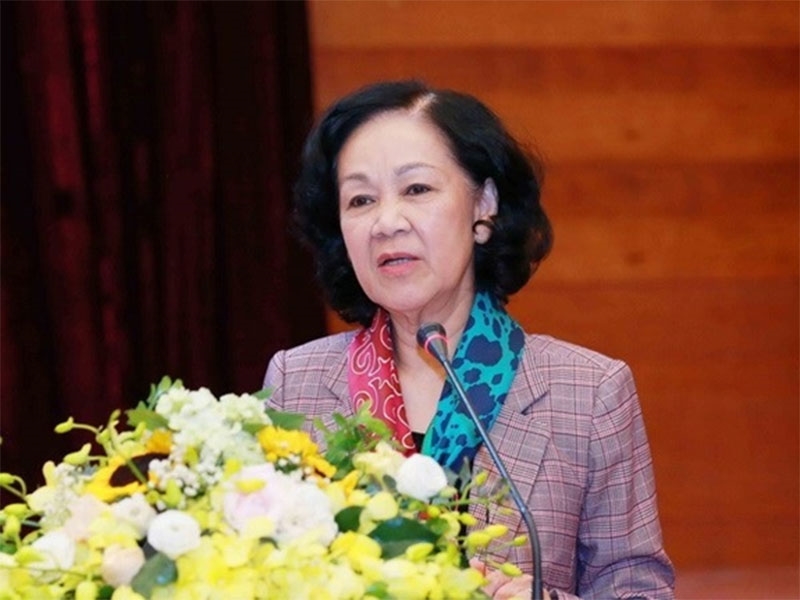Hanoi: Truong Thi Mai, the first woman at the top of the Party, also forced out
She was one of the three candidates to succeed Phu Trong at the head of the Party, the most important post. Forced to resign by the 'fiery furnace' anti-corruption campaign, which is intertwined with the manoeuvres ahead of the Congress scheduled for January 2026. Politburo reduced to 12 members from the previous 18 with incumbent Prime Minister Pham Minh Chinh and Security Minister To Lam in the top positions.
Hanoi (AsiaNews/Agencies) - The "fiery furnace" campaign within the Vietnamese Communist Party does not stop, and the week that is drawing to a close has seen perhaps the largest number of personalities excluded from the leadership of the party and the country.
The settling of accounts in the political establishment - which had already seen the resignation of two heads of state and the president of parliament in recent months - also affected Truong Thi Mai on Tuesday, the woman (the first to reach a position of this level) to head the Central Organisational Commission of the Communist Party of Vietnam and a member of the party secretariat.
A personality of great experience and following, who joined the party's Central Committee in 2006 and was elected to its Politburo (the political bureau) in 2016, Mai was one of the three remaining favoured candidates to aspire for the post of general secretary of the Communist Party of Vietnam (the most important position in Hanoi) to replace Nguyen Phu Trong, during the 14th congress scheduled for January 2026.
With the compulsory resignations of Pham Binh Minh, Nguyen Xuan Phuc, Vo Van Thuong, and Vuong Dinh Hue - which took place in December 2022 - the shortlist of candidates (who by internal rules must necessarily have served more than two terms in the Politburo) was thus narrowed down to the incumbent Prime Minister Pham Minh Chinh and To Lam, Minister of Public Security since 2016.
The latter is responsible for the moralising campaign that is gaining momentum with regard to the party founded in 1930 and that led the independence struggle and subsequently steered the country towards significant economic development, while yielding little in the way of dirigisme and authoritarianism that continues to hit any dissent hard.
Many observers are beginning to wonder when the selection for the congress will end, with a Politburo now reduced to 12 members from the previous 18 and with three of the personalities closest to the general secretary having fallen from grace in the last three months.
Among the excellent 'victims' in recent days is Pham Thai Ha, assistant and deputy to the deposed National Assembly Speaker and National Defence Commission member Vuong Dinh Hue, who was also expelled from office and from the party on 2 May for violating its rules.
Ha had been arrested on 21 April for abuse of power and use of his influence for personal gain in connection with the involvement of political figures in the interests of a large construction group. The same fate also befell Duong Van Thai, former party central committee member and influential head of the northern province of Bac Giang.
The Secretariat meeting on 14 May also expelled three other prominent figures from the party: the former vice-chairman of the People's Committee of Vinh Phuc Province, Nguyen Van Khuoc; the former secretary of the Luong Tai District Party Committee, Le Tuan Hong; and the former chairman of the Vietnamese Motherland Front Committee in Gia Lai Province, Ho Van Diem. Other prominent members of the Central Committee, as well as the heads of the Communist Party Committee in Ho Chi Minh City and that of Vinh Phuc Province, ended up under investigation for corruption and malfeasance. Among the personalities whose expulsion has been requested are the current Minister of Labour, Dao Ngoc Dung, and his predecessor.







.png)










